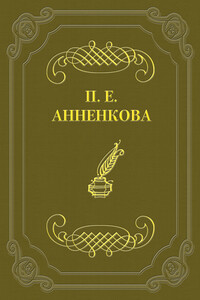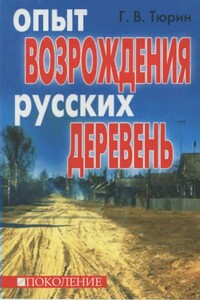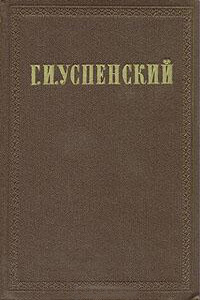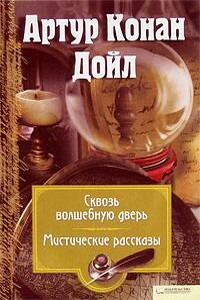The Boy Scouts In Russia - [26]
"Tell them that von Hindenburg has only a masking force here with very few first line troops," he said. "Most of the Germans are far to the south. Their plan is to join the Austrians in an advance from Cracow. Here they hope to hold the lakes with a few troops. They expect our army to advance. They will give up Johannisberg and Ortelsburg. They will make no stand at all until we come to Allenstein. The whole movement here is a trick. They hope to lead us on here and then drive a great wedge into the heart of Poland, until they can strike at Warsaw."
Fred made no comment. He sent the message, then asked his own questions.
"You know of the raid last night?"
"I heard something of it-and that the old fox Hindenburg escaped. Tell me the rest."
"I'll be off," he said, when they had done. "Half a mile away I have a cache. There is a motorcycle and the uniform of a German soldier-a man of the cycle corps. I shall follow General Suvaroff."
"Can you catch them?" asked Boris, doubtfully. "They ride fast."
"Not so fast," said Ivan. "There may be fighting to do as well as running, and for fighting you need horses that are not too tired. It would be foolish to save an hour or two by hard riding and lose everything at the end for lack of the power to break through. And a motorcycle can do better than the fastest horse."
"But how did you get one?" asked Fred. "And the German uniform?"
Ivan smiled significantly.
"I met a man of about my size," he said. "I was walking. And I was tired. I took his cycle and his uniform away from him."
There was something about his tone and the look in his eyes that made Fred refrain from asking any more questions. He admired Ivan greatly, but he was a little afraid of him, too. In him he could see what lay behind the general belief that Russia was still a barbarous, partially civilized state, the underlying truth of the old saying: "Scratch a Russian, and you will find a Tartar beneath." He was glad that Ivan was on his side, and was bound to him, moreover, by his loyalty to the name of Suvaroff.
"Listen, now," said Ivan. "Here it is very dangerous. Stay as long as you can, but never let yourselves be caught in the house by any Germans. Do not let the villagers see you. Take to the tunnel without hesitation if there is an attack upon the house, or a search. I think you will be safe as long as you are watchful, but you cannot be off your guard for even a moment. The Germans will think that you went back with the Cossacks but they will try to make sure."
"We will be careful," said Boris. "You are sure of what you have learned? There will be no more than two army corps in this region?"
"That is certain. I have scouted for twenty miles to the west and I have been along the railway lines. If there were more troops coming, I should have discovered it. I am sure of that."
"And now you are going back toward our lines?"
"Yes. I may be of service to your father. And, in any case, I shall be of more use if I am with the German advanced position than if I stayed here, far in the rear. Good-bye!"
He departed through the tunnel. And then for Fred and Boris began a task almost harder than any that could have been set. They had to wait. There was nothing for them to do except sit in the little turret room. Below, Vladimir and the others kept a sort of guard, but there seemed little reason even for that.
From the turret, whence the wireless waves were sent pulsing out through the air, a fine view of the surrounding country for a good many miles was to be had. For the most part this was a level section, slightly undulating, but with very few high spots. From their vantage point the roads stretched out like ribbons or like lines on a map. Fred opened the wireless and amused himself by listening. At first he could hear only a confused jumble through the receivers that were clamped to his ear. Then he changed his wave length, experimenting until he got a clear series of dots and dashes.
"I think I'll take this down," he said to Boris. "It'll be like Greek to us, of course, but it's all German wireless talk, and it all means something. Perhaps if we're lucky, we'll stumble on to the key of the code they're using, and that might be useful."
After a time Boris, who could receive well enough but was an inexpert sender, relieved him, and Fred, taking the field glass, began to search the horizon. Soon something caught his eye and held his attention. At first he thought he saw troops moving, coming from the east. It seemed strange that German troops should be in retreat so soon, but in a moment he understood. He did not see soldiers moving along the road, but a company of civilians, with carts that were drawn by men and women. At first the sight puzzled him, but then he understood, and he called to Boris to look.
"They're clearing out the villages toward the border," he said.
Boris only glanced through the glass.
"Yes. They were doing it the day after the war began, too," he said. "It's better for them, of course. If civilians are about where there is fighting, they are in danger from both sides. The Germans wouldn't stop a minute at shelling one of their own villages if we were holding it. Fred, I think they must be going to send our little lot away, too. There are soldiers coming along the road-Uhlans."

«Ваше величество, позвольте матери припасть к стопам вашего величества и просить, как милости, разрешения разделить ссылку ее гражданского супруга. Религия, ваша воля, государь, и закон научат нас, как исправить нашу ошибку. Я всецело жертвую собой человеку, без которого я не могу долее жить. Это самое пламенное мое желание. Я была бы его законной супругой в глазах церкви и перед законом, если бы я захотела преступить правила совестливости. Я не знала о его виновности; мы соединились неразрывными узами. Для меня было достаточно его любви…».

В книге рассказывается история главного героя, который сталкивается с различными проблемами и препятствиями на протяжении всего своего путешествия. По пути он встречает множество второстепенных персонажей, которые играют важные роли в истории. Благодаря опыту главного героя книга исследует такие темы, как любовь, потеря, надежда и стойкость. По мере того, как главный герой преодолевает свои трудности, он усваивает ценные уроки жизни и растет как личность.

Текст воспроизведен по изданию: Письма Бичурина из Валаамской монастырской тюрьмы // Народы Азии и Африки, № 1. 1962.

Плачевная ситуация в российских деревнях известна всем. После развала масштабной системы государственного планирования исчезли десятки и сотни тысяч хозяйств, произошел массовый отток населения из сельских районов, были разворованы последние ценности. Исправление ситуации невозможно без эффективного самоуправления в провинции.Организованный в 1997 году Институт общественных и гуманитарных инициатив (ИОГИ) поставил перед собой цель возрождения сельских районов Архангельской области и добился уникальных результатов.

В настоящее издание включены все основные художественные и публицистические циклы произведений Г. И. Успенского, а также большинство отдельных очерков и рассказов писателя.

В настоящей книге Конан Дойл - автор несколько необычных для читателя сюжетов. В первой части он глубоко анализирует произведения наиболее талантливых, с его точки зрения, писателей, как бы открывая "волшебную дверь" и увлекая в их творческую лабораторию. Во второй части книги читатель попадает в мистический мир, представленный, тем не менее, так живо и реально, что создается ощущение, будто описанные удивительные события происходят наяву.